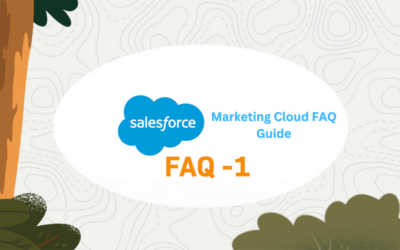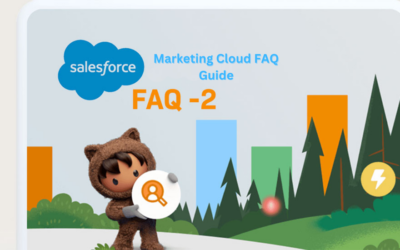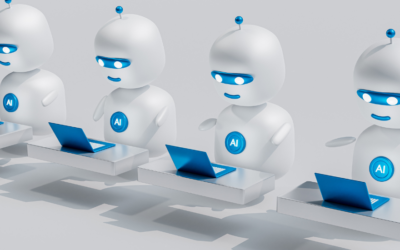In the ever-evolving realm of customer relationship management (CRM), HubSpot’s Service Hub CRM stands as a beacon of innovation, offering businesses a robust platform to revolutionize their approach to customer service. As we embark on this journey through the top 20 interview questions and answers, our aim is to unveil the depth and versatility of Service Hub CRM, empowering professionals and enthusiasts alike with insights that transcend the ordinary. Beyond the conventional CRM paradigms, Service Hub CRM redefines the narrative by placing an unwavering focus on elevating customer support experiences. This article serves as a comprehensive resource, meticulously crafted to delve into the nuances of Service Hub CRM, dissecting its features, functionalities, and strategic applications.
Our exploration will commence with an in-depth look at the foundational elements of Service Hub CRM, unraveling the intricacies of its ticketing system, knowledge base management, and the pivotal role automation plays in streamlining customer interactions. The integration landscape will be charted, emphasizing the synergy between Service Hub CRM and other HubSpot tools, as well as its seamless compatibility with third-party applications. Venturing further, we’ll navigate the user experience terrain, uncovering the platform’s user-friendly design, customization capabilities, and how it fosters collaboration among team members. From reporting tools to artificial intelligence, our journey will traverse the spectrum of advanced features, shedding light on how Service Hub CRM leverages cutting-edge technologies for predictive analytics and personalized service delivery. Join us in this exploration as we unravel the layers of HubSpot’s Service Hub CRM, unraveling the future of customer-centric CRM solutions. If you need assistance with Salesforce CRM setup and optimization, companies like CRM Force can provide valuable expertise and support.
1- How does Service Hub CRM facilitate customer segmentation and targeting?
Answer: Service Hub CRM facilitates customer segmentation and targeting through:
Data Filters: Utilize filters to segment customers based on demographics, behaviors, or interactions.
Custom Properties: Leverage custom properties to categorize and target specific customer groups.
Automation Rules: Implement automation rules to trigger actions based on predefined criteria.
Personalized Communications: Tailor communications and responses based on customer segments.
Predictive Analytics: Use AI-driven predictive analytics to identify trends and segment customers for targeted engagement.
2- What role does machine learning play in Service Hub CRM’s predictive analytics?
Answer: Machine learning in Service Hub CRM’s predictive analytics plays a crucial role in:
Pattern Recognition: Analyzing historical data to identify patterns and trends in customer behavior.
Predictive Modeling: Creating models to forecast future customer needs, preferences, and potential issues.
Dynamic Recommendations: Providing dynamic and personalized recommendations based on machine learning insights.
Optimizing Workflows: Enhancing automation and workflows based on continuously evolving machine learning models.
Adaptive Decision-Making: Enabling adaptive decision-making by leveraging real-time machine learning insights.
3- How does HubSpot Service Hub CRM ensure data security and privacy?
Answer: HubSpot Service Hub CRM ensures data security and privacy through:
Encryption: Implementing robust encryption protocols to protect data during transmission and storage.
Access Controls: Providing granular access controls to restrict data access based on user roles and permissions.
Regular Audits: Conducting regular security audits to identify and address vulnerabilities.
Compliance Standards: Adhering to industry-specific compliance standards and regulations.
Data Backups: Implementing regular data backups and recovery processes to prevent data loss.
4- What compliance standards does Service Hub CRM adhere to?
Answer: Service Hub CRM adheres to industry-leading compliance standards, including:
GDPR (General Data Protection Regulation): Ensuring compliance with European data protection regulations.
HIPAA (Health Insurance Portability and Accountability Act): Adhering to healthcare industry standards for data protection.
ISO 27001: Following the international standard for information security management systems.
SOC 2 (Service Organization Control 2): Complying with standards for managing and securing customer data.
Privacy Shield: Adhering to the framework for transatlantic data transfer between the EU and the US.
5- How does Service Hub CRM cater to the unique needs of different industries?
Answer: Service Hub CRM caters to diverse industries through:
Customizable Workflows: Adapting workflows to align with industry-specific processes and requirements.
Industry-Specific Integrations: Integrating with industry-specific tools and applications for seamless operations.
Tailored Reporting: Creating customized reports to capture and analyze industry-specific metrics.
Regulatory Compliance: Ensuring features and security measures align with industry-specific regulations.
Vertical Solutions: Offering vertical solutions or modules designed for specific industry challenges.
6- How frequently does HubSpot release updates for Service Hub CRM?
Answer: HubSpot is committed to continuous improvement, regularly releasing updates for Service Hub CRM. The frequency of updates varies but typically follows a schedule to ensure users have access to the latest features, security enhancements, and bug fixes. Users are encouraged to stay informed about upcoming releases through HubSpot’s communication channels, ensuring they can take advantage of new functionalities and improvements.
7- Are there any upcoming features or developments in the Service Hub CRM roadmap?
Answer: HubSpot often shares its product roadmap, providing insights into upcoming features and developments for Service Hub CRM. Users can check the official HubSpot website, attend webinars, or participate in community forums to stay informed about the future direction of Service Hub CRM. This transparency allows businesses to plan for upcoming changes and prepares users to leverage new functionalities effectively.
8- How can users stay informed about the latest updates in Service Hub CRM?
Answer: Users can stay informed about the latest updates in Service Hub CRM through:
Official Announcements: Regularly check official announcements on the HubSpot website or blog.
Email Notifications: Subscribe to email notifications for product updates and release notes.
Community Forums: Participate in community forums to discuss updates with other users.
Webinars and Training: Attend webinars and training sessions provided by HubSpot to learn about new features.
Social Media Channels: Follow HubSpot on social media channels for real-time updates and announcements.
9- What training resources are available for individuals looking to become proficient in Service Hub CRM?
Answer: HubSpot offers a variety of training resources for individuals looking to become proficient in Service Hub CRM, including:
HubSpot Academy: Online courses covering a range of topics related to Service Hub CRM.
Documentation and Guides: Comprehensive documentation and guides are available on the HubSpot website.
Webinars and Workshops: Live webinars and workshops conducted by HubSpot experts.
Certification Programs: Official certification programs for demonstrating expertise in Service Hub CRM.
Community Support: Engagement with the HubSpot community for peer support and knowledge sharing.
10- How does certification enhance career prospects for Service Hub CRM professionals?
Answer: Service Hub CRM certification enhances career prospects by:
Validating Expertise: Certification validates your knowledge and proficiency in using Service Hub CRM.
Marketability: Certified professionals are more marketable to employers seeking skilled CRM specialists.
Career Advancement: Opens doors for career advancement opportunities and leadership roles.
Industry Recognition: Certification is recognized as a standard of excellence within the CRM industry.
Networking Opportunities: Connect with other certified professionals through the HubSpot community for networking and collaboration.
11- What are the typical roles that involve the use of HubSpot Service Hub CRM?
Answer: Typical roles that involve the use of HubSpot Service Hub CRM include:
Customer Support Specialist: Managing and resolving customer issues through the ticketing system.
CRM Administrator: Configuring and maintaining the Service Hub CRM to meet organizational needs.
Service Manager: Overseeing the entire customer service operation, including team management.
Implementation Specialist: Assisting in the implementation of Service Hub CRM for businesses.
Sales and Service Alignment Specialist: Ensuring alignment between sales and customer service activities.
12- How does proficiency in Service Hub CRM contribute to career advancement?
Answer: Proficiency in Service Hub CRM contributes to career advancement by:
Increased Efficiency: Efficiently managing customer service operations, showcasing your value to employers.
Data-Driven Decision-Making: Making informed decisions based on data analytics within Service Hub CRM.
Process Optimization: Optimizing workflows and processes for improved customer service outcomes.
Leadership Opportunities: Demonstrating expertise can lead to leadership roles in managing CRM operations.
Strategic Contribution: Contributing strategically to the organization’s overall customer experience strategy.
13- What steps can users take for troubleshooting issues within HubSpot Service Hub CRM?
Answer: Troubleshooting in HubSpot Service Hub CRM involves several steps:
Check Documentation: Refer to the official documentation for common issues and solutions.
Community Forums: Explore community forums to see if others have experienced and resolved similar issues.
Contact Support: If the issue persists, reach out to HubSpot’s customer support for personalized assistance.
Review Updates: Ensure that the CRM software is up-to-date, as newer versions may include bug fixes.
Diagnostic Tools: Use built-in diagnostic tools provided by HubSpot to identify and diagnose issues.
14- How does HubSpot provide support and updates for Service Hub CRM users, and what channels are available for assistance?
Answer: HubSpot offers support and updates through various channels:
Customer Support Channels: Users can access customer support via chat, email, and phone for prompt assistance.
Regular Software Updates: HubSpot releases periodic updates with bug fixes, new features, and improvements.
Webinars and Tutorials: Educational resources such as webinars and tutorials are provided to help users navigate the CRM effectively.
Community Engagement: Active participation in the HubSpot community forums for peer-to-peer support and knowledge sharing.
Documentation and FAQs: Comprehensive documentation and FAQs are available to address common queries and challenges.
15- Are there community forums or user groups for Service Hub CRM professionals, and how can they be beneficial?
Answer: HubSpot hosts community forums and user groups for Service Hub CRM professionals. Benefits include:
Knowledge Sharing: Users can share insights, best practices, and solutions to common challenges.
Problem Resolution: Professionals can seek advice and collaborate to troubleshoot specific issues.
Networking Opportunities: Joining user groups provides networking opportunities with fellow CRM professionals.
Stay Informed: Users can stay updated on the latest trends, updates, and best practices in Service Hub CRM.
Collaboration: Community forums foster collaboration on problem-solving and innovative use of Service Hub CRM features.
16- What specific artificial intelligence capabilities does HubSpot Service Hub CRM offer, and how can they benefit businesses?
Answer: HubSpot Service Hub CRM integrates artificial intelligence with features such as:
Automated Ticket Routing: AI algorithms intelligently route tickets based on predefined criteria.
Predictive Analytics: Machine learning predicts customer needs and potential issues, allowing proactive resolution.
Chatbots: AI-powered chatbots provide instant and personalized customer interactions.
Customer Insights: AI-driven analysis of customer data offers insights for personalized service and recommendations.
Automated Responses: AI automates routine responses, enhancing efficiency and maintaining consistency.
17- How does Service Hub CRM facilitate customer segmentation and targeting, and why is this important for businesses?
Answer: Service Hub CRM facilitates customer segmentation and targeting through:
Data Filters: Users can segment customers based on demographics, behaviors, or interactions using filters.
Custom Properties: CRM allows the use of custom properties for categorizing and targeting specific customer groups.
Automation Rules: Automation rules can trigger actions based on predefined criteria for targeted engagement.
Personalized Communications: Businesses can tailor communications and responses based on customer segments.
Predictive Analytics: Utilizing AI-driven predictive analytics helps identify trends and segment customers effectively.
18- How does HubSpot Service Hub CRM prioritize data security and privacy, and what measures are in place to safeguard user data?
Answer: HubSpot Service Hub CRM prioritizes data security and privacy through:
Encryption Protocols: Robust encryption ensures data is secure during transmission and storage.
Access Controls: Granular access controls restrict data access based on user roles and permissions.
Regular Security Audits: HubSpot conducts regular security audits to identify and address vulnerabilities.
Compliance Standards: Adhering to industry-specific compliance standards such as GDPR, HIPAA, ISO 27001, and SOC 2.
Data Backups: Regular data backups and recovery processes prevent data loss and ensure business continuity.
19- How does Service Hub CRM cater to the unique needs of different industries, and can you provide industry-specific examples?
Answer: Service Hub CRM caters to diverse industries through:
Customizable Workflows: Adapting workflows to align with industry-specific processes and requirements.
Industry-Specific Integrations: Integrating with tools specific to certain industries for seamless operations.
Tailored Reporting: Creating customized reports to capture and analyze industry-specific metrics.
Regulatory Compliance: Ensuring features and security measures align with industry-specific regulations.
Vertical Solutions: Offering vertical solutions or modules designed to address specific challenges in industries such as healthcare, finance, or e-commerce.
20- How frequently does HubSpot release updates for Service Hub CRM, and what benefits do users gain from staying updated?
Answer: HubSpot releases updates for Service Hub CRM regularly, with benefits including:
Bug Fixes: Addressing and resolving issues to enhance system stability and performance.
New Features: Introducing new functionalities and tools to improve user experience and capabilities.
Security Enhancements: Implementing measures to strengthen data security and privacy.
Improved User Interface: Enhancing the CRM’s user interface for a more intuitive and efficient user experience.
Optimized Performance: Continuous improvements for overall system performance and responsiveness.
Conclusion
In wrapping up our exploration of HubSpot’s Service Hub CRM within this CRM FAQ Guide, it becomes evident that the significance of customer relationship management extends far beyond conventional paradigms. Service Hub CRM stands as a catalyst for a paradigm shift, where businesses are empowered to redefine their customer service narratives. The top 20 interview questions and answers laid out in this guide not only illuminate the technical aspects of the platform but also underscore its strategic importance in cultivating enduring customer relationships. As we navigate through the realms of ticketing systems, knowledge base management, and the intricacies of customization, it becomes clear that Service Hub CRM is not merely a tool; it’s an enabler of seamless, customer-centric experiences.
In the ever-evolving landscape of CRM solutions, Service Hub CRM emerges not as a static entity but as a dynamic force, adapting to the evolving needs of businesses and customers alike. The insights gained from this guide transcend the interview room, providing professionals with a compass to navigate the complexities of modern customer service. As businesses increasingly pivot towards customer-centricity, Service Hub CRM stands at the forefront of this transformation, ushering in an era where every interaction is an opportunity to exceed customer expectations. This CRM FAQ Guide is not just a compilation of questions and answers; it’s a roadmap for those seeking to chart a course toward unparalleled customer service excellence. To learn more about how CRM Force can assist you in recruiting top CRM talent and optimizing your CRM strategies for successful drip campaigns, contact us today. Together, let’s maximize your customer engagement Contact Us today.





